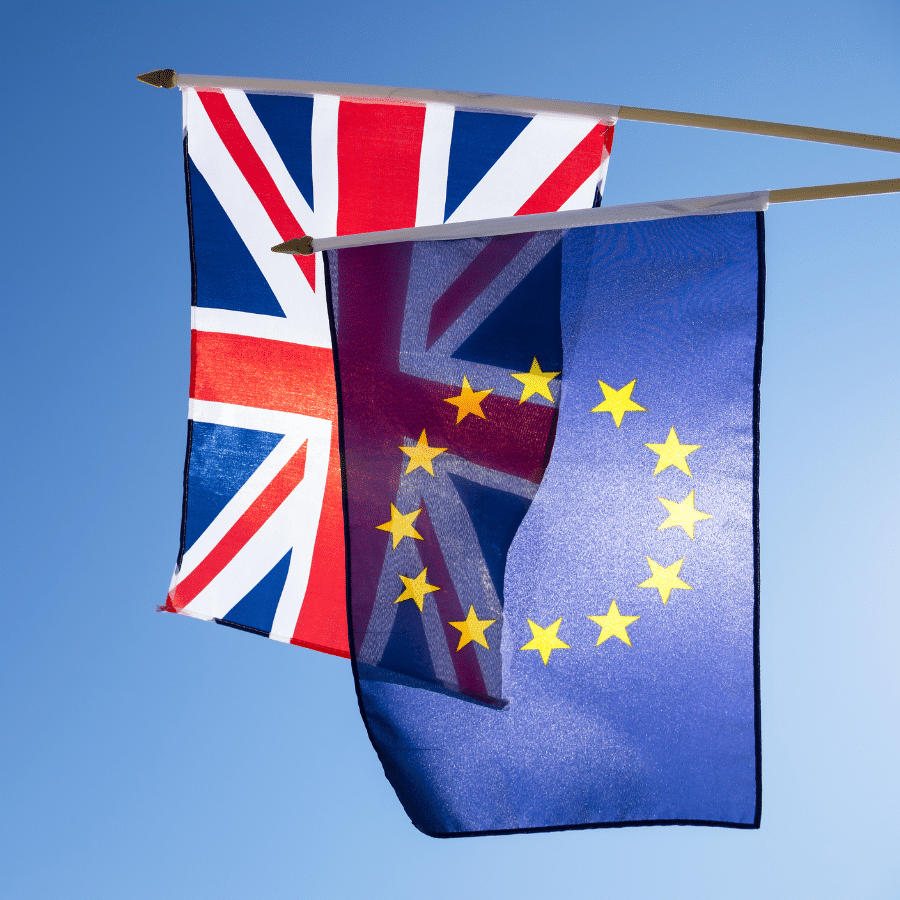Published by Skills for Justice
How skills training could change after Brexit
Date 28.03.19

While we still can’t predict what the full implications of Brexit will be, we do know that in the longer term, many EU laws will be up for review.
Training in the justice sector will need to reflect this, as areas such as health and safety, policing and judicial law could be affected.
Here’s how we believe Britain’s exit from the European Union – whenever that now happens – could affect each sector, and how you can prepare for the changes.
Fire and rescue
While some fire safety laws – such as the Management of Health & Safety at Work Regulations 1999 – have been influenced by the EU Framework Directive, it is actually the EU who looks to the UK to set standards in fire safety – meaning not much is expected to change.
As Fire Protection Online points out, the Regulatory Reform (Fire Safety) Order 2005 sets fire safety standards for England and Wales. Scotland and N. Ireland have their own fire safety regulations too. Since these are enshrined in UK law, they shouldn’t be affected by Brexit.
And there are many other regulations that are unlikely to change. Andy Luke of FSS South, for instance, pointed out that regulations such as BS EN3/the BSI Kitemark are also under British control.
In fact, if there are changes to UK regulations following Brexit, they will likely be to make standards even stricter, particularly where manufacturing standards are concerned.
Police service
One of the biggest issues facing police after Brexit is the lack or loss of information sharing with European forces. But both the EU and the UK have a joint interest in exchanging information – at least, for now. A study by the European Parliament therefore argued in favour of a special relationship with the UK in terms of policing and information sharing.
Of course, certain EU laws will be repealed, but this won’t happen all at once. The government is expected to phase unwanted laws out over a period of time. This should allow plenty of time to train law enforcers. But it’s still unknown which EU laws are expected to be removed.
Another issue that may affect policing is the rise in social tensions and hate crimes. Last year, the Home Office confirmed that the referendum had caused a spike in hate crimes, with Her Majesty’s Inspectorate of Constabulary estimating that such crimes had increased by up to 57% between 2014/15 and 2016/17. That spike may appear again after March 29th 2019, which is why it’s vital for frontline police officers to be trained to respond appropriately.
As we’re now all too aware, in Northern Ireland, there is also the Irish border to consider. The history between Ireland and Northern Ireland is a very sensitive and incendiary issue. Therefore (and this only applies in the case of a hard border), officers will need to be trained in conflict resolution so as not to provoke tension, while also undergoing training to protect people crossing the border.
Criminal justice
According to CEPS, Britain will require a new legal framework after Brexit – one that can sustain a relationship between the EU and the UK. The only question is, how can both sides create complementary frameworks that allow them to fight cross-border crime while guaranteeing compliance with one another?
Britain currently plays a leading role in European law enforcement through its contribution to Europol and, as previously mentioned, it is unclear how information will be shared among police forces in years to come – but it is hoped that both sides will reach an agreement before March 29, 2019.
In 2017, the EU Home Affairs Sub-Committee published a report highlighting the risks involved in interrupting the effects of the European Arrest Warrant. They said that suddenly ending the authority of the warranty ‘would pose an unacceptable risk to the people of the UK’. The report went on to argue that, since dispute resolution is in the interests of both the UK and the EU, the priority for both parties should be to maintain a close working relationship. As there is currently no clarity on exactly how Brexit will affect Britain’s criminal justice system, it’s too early to say how skills training will be affected.
Armed forces
Army training in the home countries will be mostly unaffected as the UK will still be part of Nato and the UN, and has operated its military mostly independently of the EU for the duration of its membership.
However, the British military must consider its overseas interests, particularly in Gibraltar, Cyprus and at the Northern Irish border. Recently, the MoD confirmed their intention to bolster defences in Cyprus in the event of a no-deal Brexit, while plans to expand maritime facilities in Gibraltar for after Brexit are already underway. There is also the question of the Northern Irish border. Currently the UK and Ireland operate the “Common Travel Area”. But after Brexit, the UK will have a land border with the EU in Ireland which may require fortification or military patrol.
But apart from these considerations, the military relationship between Britain and the EU doesn’t look set to change – except, perhaps, that Britain may become more involved than ever:
- The UK Government has pledged to carry on supplying UK troops, technology and intelligence to EU defence missions after Brexit. It has already taken steps to address Britain’s future security challenges with a planned defence co-operation deal with Germany in areas such as cyber security, military training and maritime patrols.
- The UK could also become part of a new European Intervention Initiative that would be separate from other EU defence programmes. Spearheaded by French president Emmanuel Macron, it would see a European military force created for rapid deployment in times of crisis. British representatives were reportedly “very keen” to sign the agreement in order to “maintain cooperation with Europe beyond bilateral ties.”
- Also, the President of the European Commission has advocated the creation of a European Army separate from NATO, which senior German general Carsten Jacobson is supposedly keen on. As Britain will still be a NATO member, it remains to be seen what the United Kingdom’s position on the establishment of this army will be – or whether they will be invited to join.
So, a raft of changes is to be expected – but for now, it’s business as usual in terms of skills training.
Local government
The EU Withdrawal Bill will copy all existing EU legislation into UK law, and it is expected that these laws will only change in the months and years after Brexit – there are currently few proposals on the table for how local laws and systems of governance should change after Britain’s departure, so many EU policies may simply carry on under local control.
The UK government seems to support this way of doing things, and has pledged to continue funding EU initiatives for local governments until 2020 in the event of a no-deal Brexit. Local areas will need at least £8.4 billion of EU funding to be replaced after Brexit, according to the Local Government Association.
But local governments must contend with other and sometimes much more niche issues. For instance, there is the shortfall in labour to consider. Currently, 7 per cent of adult social care staff and 13 of manual construction workers come from outside the UK – many are EU nationals. If these people are no longer allowed to live and work in the UK, it will worsen existing social issues, such as the lack of new homes, that local governments will have to compensate for.
There is clearly a huge need for training in local governments – already, many councils admit to being unaware how to plan for Brexit. Kent council, for instance, understands that parts of the M20 to Dover may become a lorry park while they attempt to figure out how to ease the passage of vehicles to and from the continent.
Unfortunately, the bottom line for all sectors seems to be that, without clarity of what will change, there is little that can be done to prepare. What’s important is that skills trainers remain agile and sensitive to issues as they develop, and that they are always ready to provide training where it is needed. As Brexit approaches, stay tuned to the Skills for Justice blog to discover new ways to train your staff for what’s to come.
To find out more about the sectors we serve, click here.
Sign up to receive news and updates from Skills for Justice
"*" indicates required fields







